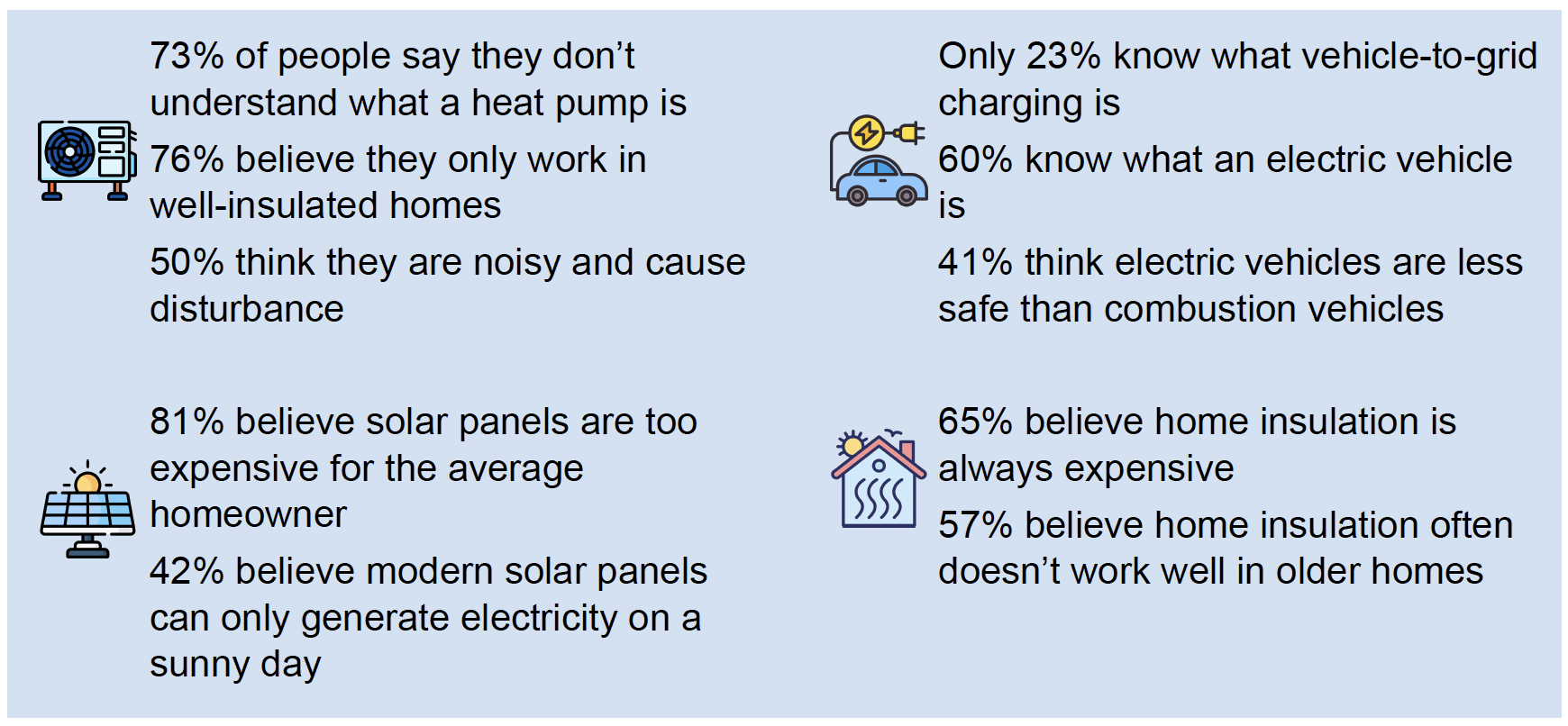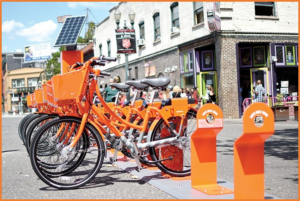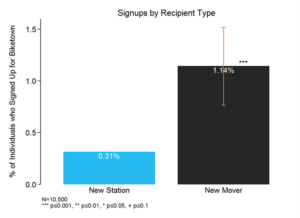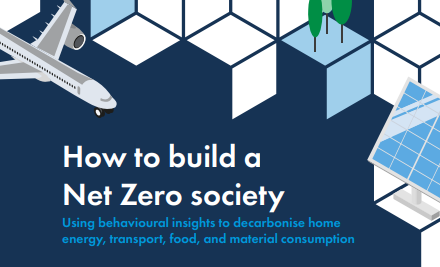We know that reaching Net Zero requires us to embrace new, low-carbon technologies and rethink how we heat our homes, how we travel, and even how we eat.
Much of the responsibility is falling on the public to make significant changes and while green technologies may ultimately be mandated, a smooth transition requires a great deal of voluntary engagement. But the majority of us either don’t know what to do or aren’t yet fully on board. That’s where a comprehensive approach to communications, marketing, and public engagement comes into play. People want to take action – but they need more guidance, clarity, and inspiration to make those necessary changes.
Our new report, which assesses evidence from a fresh survey of British consumers with expert insights across climate, energy, and communications, past Net Zero projects, and real-world case studies, identifies 10 critical functions of communications, all of which we believe to be necessary to address barriers to pro-environmental action. They are:
1) Increase public knowledge of green choices
Many people simply don’t know what steps they should take to reduce their carbon footprint. Our report shows that there’s a significant gap between what people think is impactful (like turning off lights) and what truly makes a difference (like upgrading heating systems) – see Figure 1. Effective communication must raise awareness about which green choices matter most, helping people focus on the actions that have the biggest environmental impact.
2) Create demand for new technologies
Many of the big-hitting climate actions involve significant purchases or new, unfamiliar technologies, including heat pumps and electric vehicles. This requires a major marketing effort that makes these product categories appealing, emphasising the benefits relevant to different consumer groups.
3) De-mystify new technologies and counter misinformation
Misinformation and myths about new technologies, like EVs and heat pumps, are rampant. The report reveals that many people hold inaccurate or exaggerated negative beliefs, such as thinking EVs don’t work in cold weather or that heat pumps are noisy and ineffective. A key role of public engagement is to demystify these technologies, providing clear, accurate information to counter the negativity.

Figure 1. Prevalence of poor knowledge, negative sentiment and inaccurate beliefs on key technologies. (Internal BIT data.)
4) Address Poor ‘How-to’ Knowledge
Even if people are willing to adopt new technologies, many lack the procedural knowledge or confidence to make it happen (see Figure 3). Outside of cost, these were some of the highest-reported barriers, particularly to more ‘involved’ actions such as DIY retrofits, and engaging new technologies such as demand flexibility, hydrogen or biomass heating. Public engagement needs to offer practical guidance and step-by-step support to help people navigate the often-complex process of adopting low-carbon solutions.
5) Signpost financial support and aid sound financial decision-making
Cost is a major barrier to adopting green technologies, and whilst we need more than effective communications to address this barrier, many people aren’t aware of available subsidies or the long-term savings of products like EVs. E.g. 57% didn’t believe the government offers subsidies for heat pumps (in fact, £7,500 grants are available), and 75% believe EV batteries need replacing every few years, and 66% believe they end up more expensive over the lifetime, despite running costs being significantly lower for many drivers.


Figure 2. Percentage of respondents that selected finance-related barriers for a range of Net Zero behaviours. (Internal BIT data.)
6) Make green choices easier with tailored tools and advice
Beyond financial barriers, the perceived hassle of adopting green technologies can deter people from making changes. For instance, relevant data points from our survey include the following inclusions in people’s ‘top 3’ barriers:
- 23% say the heat pump adoption process is too much hassle
- 15% say they don’t know where or how to find qualified heat pump installers and suppliers
- 13% wouldn’t feel confident getting a good price for home insulation or failing to find a quality installer, and 11% worry they’d make a poor choice that results in dampness or other problems for the home
Tailored advice, tools, and guidance can help reduce the complexity and uncertainty of these decisions, giving people confidence to take action. This might include offering cost calculators, DIY guides, or connections to trusted installers.
7) Prompt people at key moments of change
People are more likely to adopt new behaviours during key life moments, such as moving house or switching jobs. Effective marketing can leverage these ‘moments of change’ to prompt action, ensuring people are nudged towards making green choices at the right time.
Using communications at ‘moments of change’. We found that a promotional leaflet for a cycle share scheme in Portland, USA was nearly 4-times more effective when we targeted home-movers, compared to existing residents with a new station nearby.
Figure 3. The Portland cycle share scheme bikes (left) and a bar chart showing increased effectiveness of targeting home-movers compared to existing residents with a new station nearby (right). (Internal BIT data.)
8) Build trust in the Net Zero narrative and institutions
According to our survey data, 87% ‘wish leadership from government and business was stronger’, including ‘doing more to help me make more sustainable choices (e.g. by providing better information)’. And yet, in recent years, public trust in public institutions is at a historic low. This matters, because research has shown a link between public trust (social capital), and effective delivery of climate policy. Strategic communication must therefore rebuild this trust by showing that institutions are leading by example, being transparent about the benefits and costs of Net Zero, and delivering on their promises.
What is the right institution to lead on Net Zero communications and public engagement?

Figure 4. Preferences of the British public on messengers and characteristics for a Net Zero communications campaign. (Internal BIT data.)
9) Maintain public support for Net Zero policies
Mandates and policy changes will be necessary to reach Net Zero, but these policies need public backing to succeed. Effective public engagement can help maintain support by ensuring people understand the fairness, effectiveness, and benefits of these policies, and by addressing their concerns upfront.
We recently undertook further research to understand why people may support or oppose specific Net Zero policies. Some headline insights from our recent work on public support for Net Zero policy stand out:
- The acceptability of policy is very strongly correlated with the perceived fairness, effectiveness, and feasibility of that policy. Wider evidence also highlights the importance of salient benefits to the individual and to society.
- People may oppose a policy either because they disagree with its goal (e.g., not wanting to reduce meat consumption) or because they find the method coercive or unfair (e.g., opposing taxes on gas boilers to push heat pump adoption).
- There are many reasons why people might dislike the policy outcomes (e.g. I don’t want to drive an EV because charging infrastructure isn’t adequate) or the means (e.g. it i’s coercive or unfair). Our research shows it is possible to understand these public concerns and design policy in ways which alleviate those concerns.For example, a ban on new combustion vehicles by 2035 could gain support by ensuring adequate public charging infrastructure or regulating public charging costs to be on par with at-home rates.
10) Create meaningful market signals (e.g., labels)
Eco-labels and rating systems are essential for helping consumers make informed choices. Clear labels, like energy efficiency ratings or carbon footprints, can guide consumers toward greener products and thus create incentives for businesses to offer more sustainable options. These labels should work in synergy with wider awareness campaigns, ensuring that consumers have the information they need to make greener purchases.
Conclusion
The UK’s path to Net Zero depends on more than just government policy – it requires widespread public engagement and a coordinated effort to change behaviours. By increasing awareness, dispelling myths, offering practical support, inspiring action and building trust, we can support people to make the choices needed to decarbonise the economy. Public engagement isn’t just important – it’s the key to making Net Zero a reality.
Read more in the report here, and reach out to the Behavioural Insights Team if you are interested in further collaboration on communications for Net Zero behaviour change.









